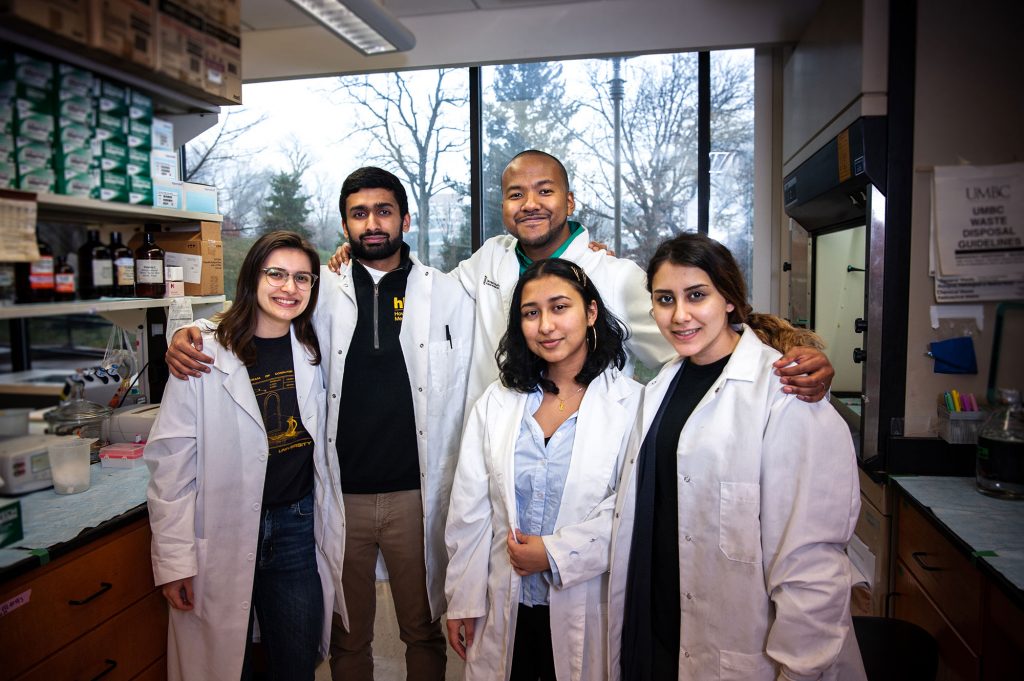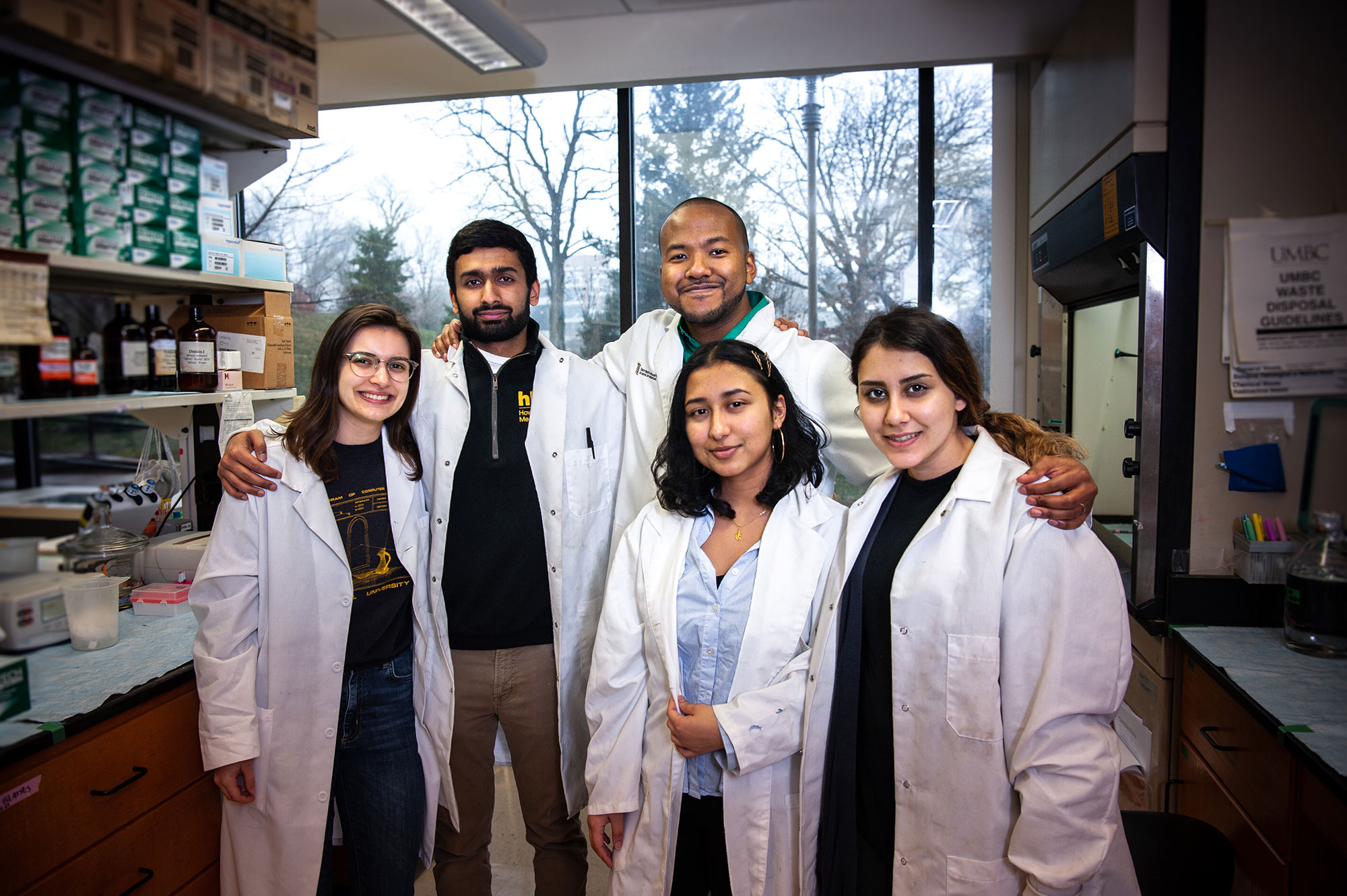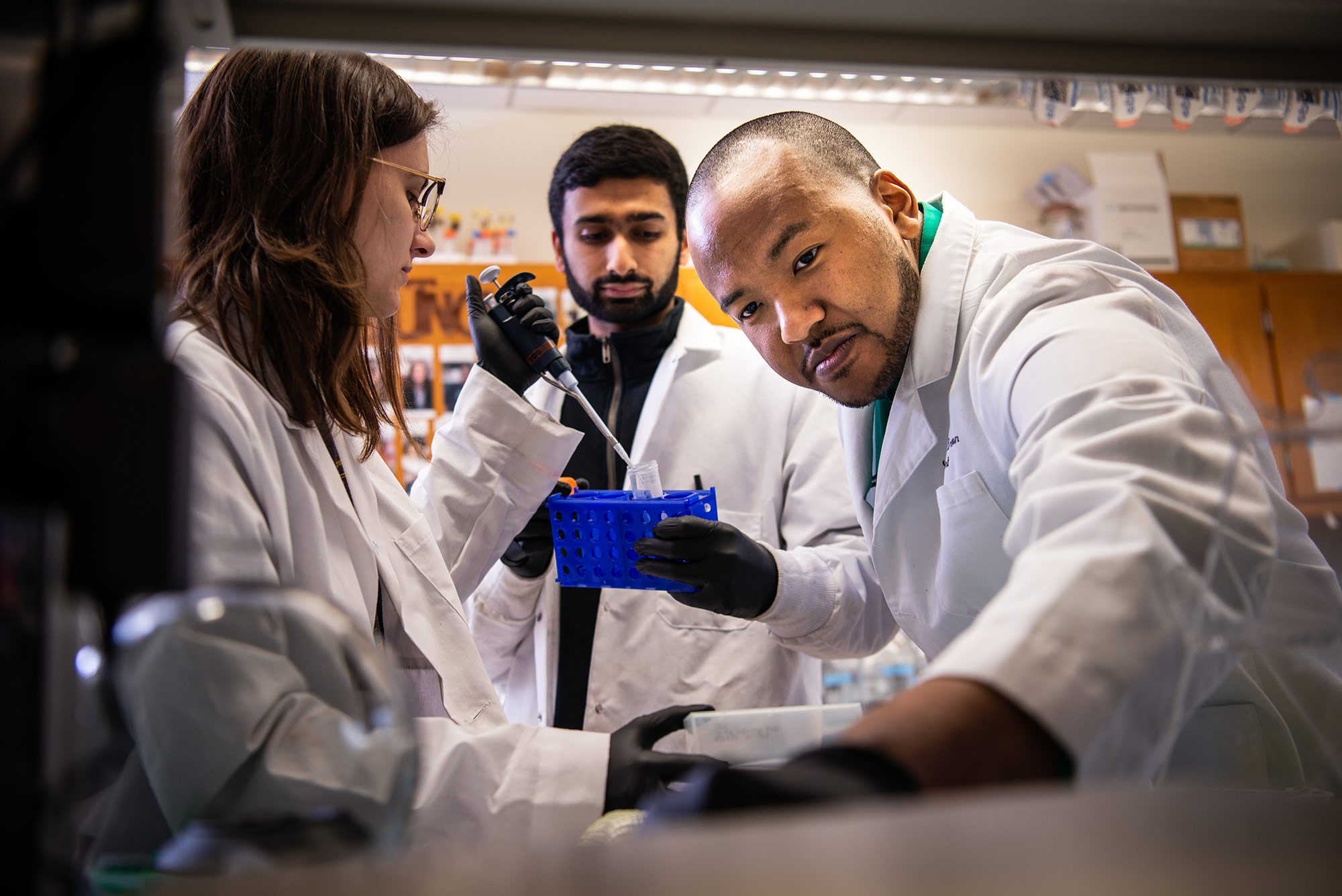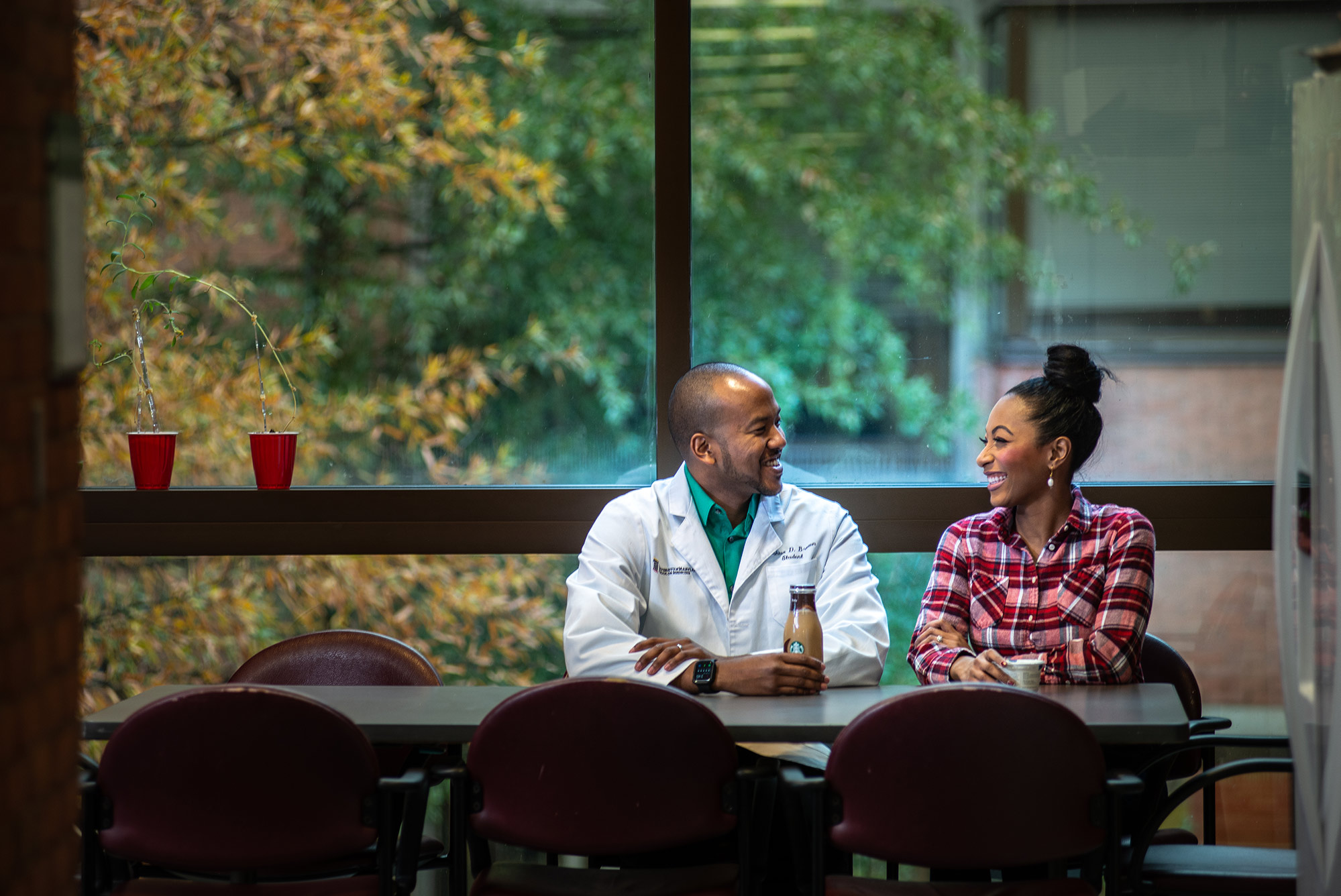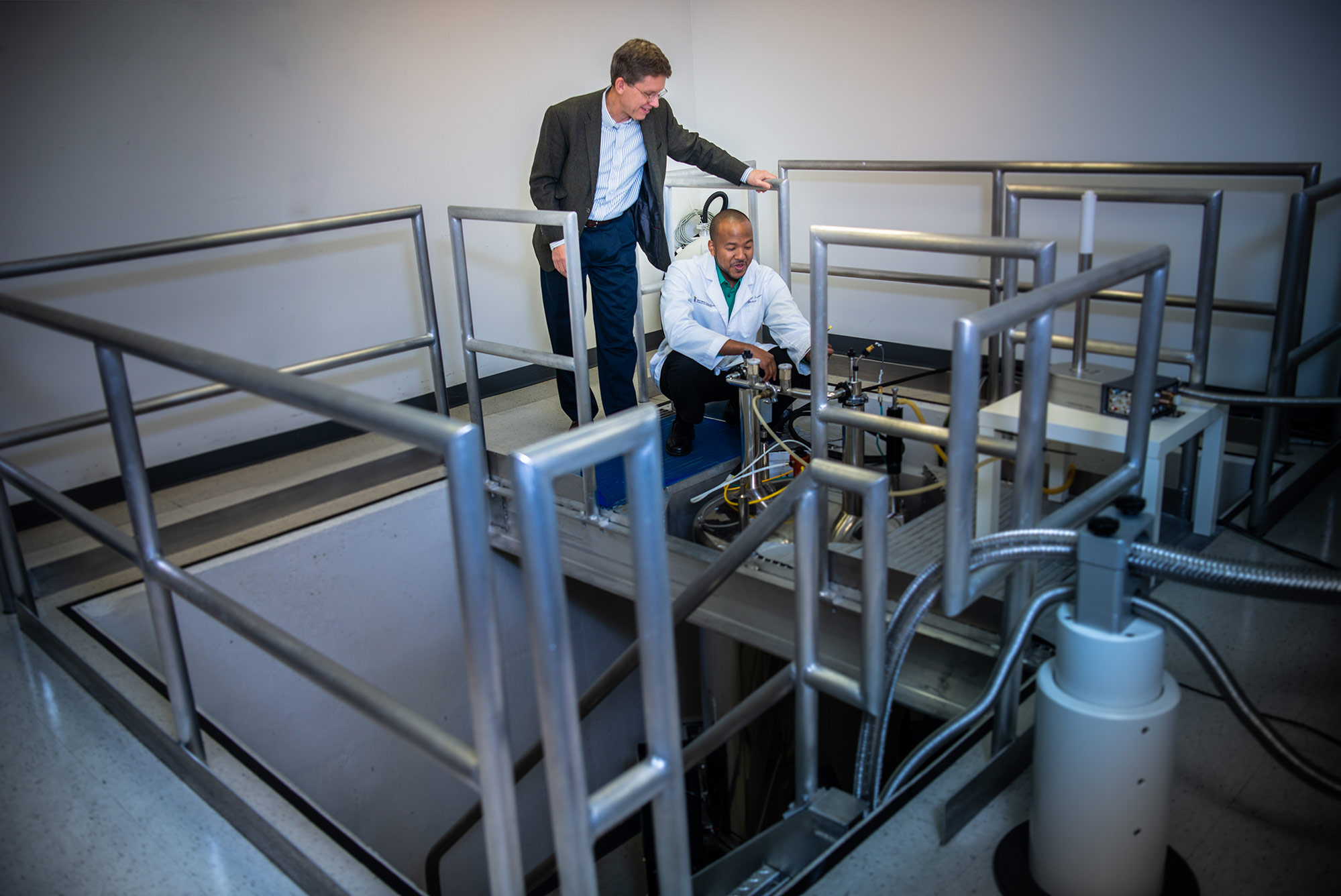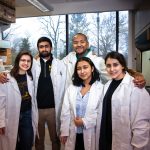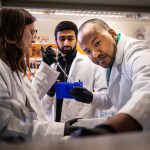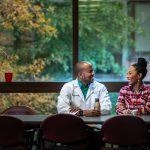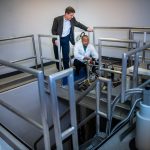Joshua Brown | UWF Graduate '12
On a path to discovery.
By Mark Gause
You don’t wake up one morning, pour yourself a cup of coffee and decide to change your life’s work from installing Cat 5 cable to searching for a cure for HIV/AIDS. Or do you? Sounds more like a storyline for a Hollywood movie. You know the one…Hometown boy graduates from high school. Enrolls in college. Meets his mentor. Finds his passion and true love. Graduates, marries and moves thousands of miles from home on a path to discovery.
Oh, wait a minute, this is exactly the plot for Joshua Brown’s story.
Joshua graduated from the telecommunications program at West Florida High School of Advanced Technology. After graduation, he enrolled at UWF because of the student/faculty ratio and one-on-one training opportunities. During his time, Joshua refocuses his studies on becoming a physician. He meets his sweetheart and comes really close to missing the single most important moment in his career.
+ Behind the scenes working on a novel mechanism that can be designed as an inhibitor against HIV.
If anyone ever said a single seminar changed their life, one might think they were exaggerating. In the case of Joshua Brown, it couldn’t be truer. As if guided by an unseen force—in probability and reality a force known as his UWF professors—Joshua attends a seminar featuring Dr. Michael Summers—a UWF alumni and distinguished member of the National Academy of Sciences. It’s here that Joshua meets his future mentor in Dr. Summers, a man recognized for his exceptional contributions to the scientific community and his work to retain underrepresented populations in science. This seminar, in fact, not only changes Joshua’s life, but changes his outlook on it, as well. Because while chatting with Dr. Summers at the end of the event, Joshua gets an invitation to the Summer internship program at Dr. Summers’ lab.
What does one do when faced with such a prestigious invitation? You accept, right? Except, like the seminar, that wasn’t Joshua’s first instinct. Not because he didn’t feel worthy of it. Not because he was second-guessing leaving Pensacola. No, not at all. Joshua simply thought research was boring. Again, if not for the encouragement and prodding of his UWF professors, he would have let this perception stop him. Joshua decides to accept Dr. Summers invitation, uncovers a new fascination and respect for research, and emerges as a passionate advocate for the advancement of science.
Science is about a desire to explore and understand the unknown. It fuels and satisfies one’s curiosity. For Joshua, his curiosity and thirst for knowledge goes from the lab bench to the patient’s bed. He seeks to cover the whole medical spectrum, find the answers to what ails and inflicts humankind, and see firsthand how research impacts patients.
Joshua combines his passion for medicine and science to become a physician-scientist.
+ Finding a little downtime with his wife Janae, both UWF graduates.
He also finds his true loves and marries one of them. With a degree from UWF in biochemistry, he moves thousands of miles from home with his wife, a UWF graduate in chemistry, to conduct his Ph.D. research at the University of Maryland Baltimore County and M.D. training at the University of Maryland, Baltimore.
There, the couple joins the research team of his mentor, Dr. Michael Summers—the man who put him on this career path and also helped to instill the importance of mentorship in Joshua. Something he got a heavy dose of while at UWF and gives tons of credit to Dr. Karen Pritchard, Dr. Karen Molek and Dr. Michael Huggins.
With this engrained mindset and sense of purpose, Joshua becomes the mentor. He guides his students in building research projects as a team and spend years working shoulder-to-shoulder with them—transferring knowledge, wisdom and insights as they search for new ways to help reduce HIV-related deaths.
The research, conducted by Joshua and his team, is concentrated on the one region of HIV biology that—until now—was a poorly understood.
+ Joshua credits Dr. Michael Summers for where he is today.
This one region of the HIV biology isn’t prone to high rates of mutations. It also has promising attributes for drug discovery. Existing HIV therapies target proteins that are prone to high rates of mutations which lead to emergence of resistant strains of HIV—rendering these drug therapies non-effective.
Since the virus is so small, microscopes can’t be used to study this region. Joshua uses recently developed nuclear magnetic resonance spectroscopy (NMR) techniques to enable the breakdown and analysis of the virus in the RNA genome. As a result, he has been found to be a highly attractive target for the development of an inhibitor against HIV. A breakthrough of this magnitude could contribute to ending the decades-long quest to effectively prevent, treat and cure this disease.
It’s also a start to a decades-long role as a mentor. Joshua is steadfast about mentoring the next generation and ensuring that other students in the field explore different paths and challenge perceptions like he did. It’s not just a rewarding thing, but a paying it forward kind of thing.
